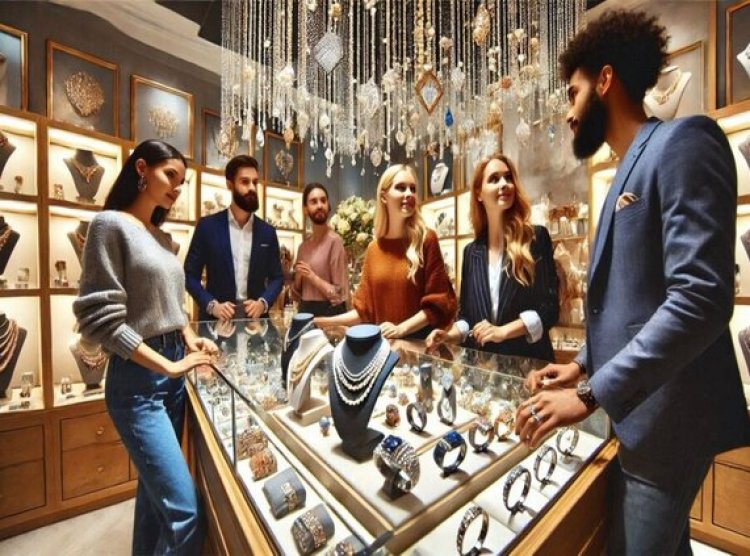Sustainable Jewelry Redefines Luxury: Ethics, Elegance, and Environmental Responsibility
Jewelry Industry Embraces Sustainable Practices, Ethical Sourcing, Recycled Materials, and Local Artisanship to Meet Growing Consumer Demand for Responsible, Eco-Friendly Luxury

The jewelry retail industry is undergoing a transformative shift as sustainability and ethical practices redefine the meaning of luxury. Consumers are demanding more than just beauty; they want assurance that their purchases align with their values of environmental consciousness and social responsibility.
The Rise of Ethical Sourcing
Today's informed consumers prioritize ethical sourcing, seeking assurance that their jewelry, from conflict-free diamonds to responsibly mined gemstones, is free from exploitation. Brands are responding by emphasizing transparency across the supply chain, meeting rigorous ethical standards to build trust.
Recycled Materials Gain Popularity
Using recycled gold, silver, and gemstones is becoming a preferred choice for many brands. These materials significantly reduce the environmental impact of mining while preserving the same quality and beauty as newly sourced alternatives, promoting eco-friendly production.
Innovations in Eco-Friendly Design
Sustainability extends to production, with jewelers adopting techniques like 3D printing and modular designs to minimize material waste. These innovative methods ensure precision crafting without compromising on quality.
Millennials and Gen Z Drive the Trend
Younger generations, especially Millennials and Gen Z, value authenticity, sustainability, and the story behind their jewelry. They prefer brands that support local artisans, use sustainable materials, and create bespoke pieces, blending ethics with personal expression.
Empowering Local Artisans
Collaborating with local craftsmen not only preserves traditional techniques but also ensures fair wages and supports communities. This approach reduces reliance on mass production, resulting in unique, high-quality jewelry with a lower carbon footprint.
Transparency Builds Trust
Modern consumers demand clear insights into sourcing and production. Certifications like Fairtrade and Responsible Jewellery Council (RJC) accreditation are critical markers of credibility. Open communication fosters trust and strengthens relationships between brands and their audience.
Circular Fashion in Jewelry
The industry is embracing circular fashion, encouraging customers to repurpose old jewelry into contemporary designs. This practice reduces waste while preserving the sentimental value of heirlooms, aligning with the ideals of sustainable luxury.
The Future of Sustainable Luxury
The shift toward mindful consumption signifies a broader cultural change. By adopting sustainable practices, the jewelry industry not only meets consumer expectations but also contributes to a healthier planet. Sustainable luxury is no longer niche; it is becoming the new standard.

 sheetal
sheetal 










